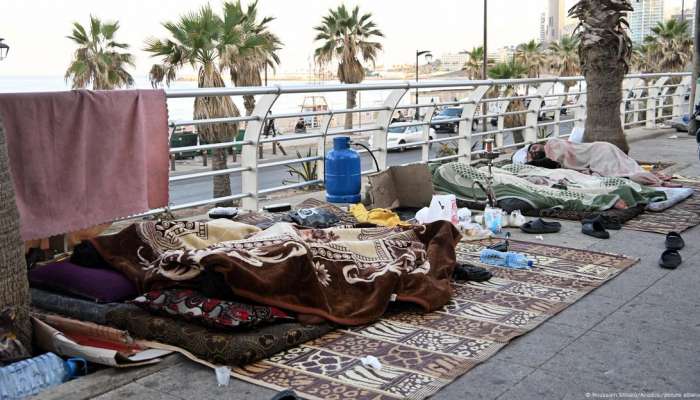
Beirut: In Lebanon, everyone appears to be scrambling for safety as best they can. However, among those left behind are migrant domestic workers, especially those from Africa.
Migrant workers of African origin say they have found it difficult to access emergency shelters after their Lebanese employers abandoned them in the middle of a worsening conflict zone.
The Hamas-led attacks on Israel on October 7, 2023, have triggered a widening regional conflict, including Israeli airstrikes and a ground offensive in Lebanon.
The Lebanese government estimates that the current violence has displaced over 1.2 million Lebanese nationals. There are, however, no reliable figures on how many foreigners might be affected by the ongoing crisis.
“These people do not care about us. To them, we are like working machines. My friends were denied entry at shelters because they are not Lebanese,” said Regina Blessing Kyalo, a Kenyan domestic worker who came to Lebanon in 2023.
“We are stuck. There is no way out,” she told DW.
Mariatu Tholley, a Sierra Leonean migrant living in Beirut, told DW that she has been having sleepless nights. “They are bombing everywhere at night. This country is not safe for us for now,” she said, adding that she had nowhere to go.
Lebanese authorities have recently faced repeated accusations of prioritising the safety of their own citizens and are accused of discriminating against foreigners.
Growing despair amid limited shelters
UN officials say that most shelters in Lebanon for displaced people are now full. People have turned instead to sleeping out in the streets or in public parks to avoid shelling and rocket attacks.
“Most of the nearly 900 government-established collective shelters in Lebanon have no more capacity,” Rula Amin, from the UN Refugee Agency (UNHCR), said during a press briefing in Geneva.
Mathieu Luciano, head of the International Organization For Migration (IOM) in Lebanon, has also expressed his concern for thousands of domestic workers, often female migrants, whom he said were “abandoned” by their employers. “They face very limited shelter options,” he said.
The situation is extremely difficult for migrant women in particular, as many of them work as freelance domestic workers paid per hour, according to Dara Foi’Elle from Migrant Workers’ Action, a Lebanese NGO.
She told DW that many usually work as live-in domestic workers in the middle-class areas of Southern Lebanon — the same region Israel has been shelling in its fight against Hezbollah during the past few weeks.
“There is need for organised sheltering for migrants, which should be organised by international organisations,” Foi’Elle said. She added that the Lebanese government has a policy “to prioritise its citizens at public shelters.”